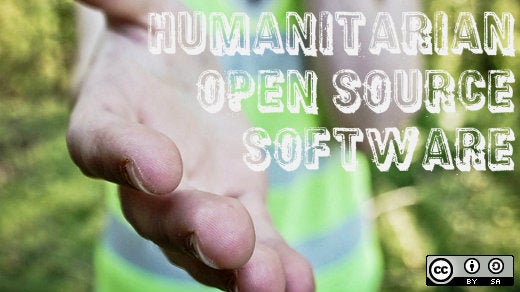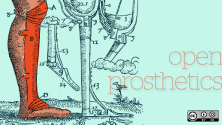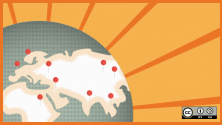FOSS
This article is part of the HFOSS column coordinated by Jen Wike Huger. To share your projects and stories about how free and open source software is making the world a better place, contact us at open@opensource.com.
Lending a digital hand for humanitarian projects is just a click away. Whether you have five minutes or a few hours, you can make a difference with a variety of HFOSS projects. The level of skills required vary from web search, verification, mapping, translation, training, and open source software development. Along the journey of changing the world, you can meet like minds and hone your skills. The key is to ask yourself: What do I want to do? How can I get started? How can I find the right project and community?
Over the years, Opensource.com has featured a number of articles about HFOSS and digital humanitarianism. We are in an unprecedented time of openness for international governmental organizations (INGOs) and non-governmental organizations (NGOs). Citizens and civil society have a place at the table to affect change via digital humanitarian efforts, often using free and open source software.
This primer provides an overview and touches on some amazing projects.

What can I do?
Many of you already contribute to open source projects, or you arrived at Opensource.com to seek a new adventure. When it comes to HFOSS, remember that you can’t break the Internet by trying. There is an element of seriousness and a sense of “matter” which might deter you. Don't worry, we have a sense of humor and camaraderie like many open source communities.
Digital humanitarian communities vary in size, structure, and focus. There are well-established groups like Sahana Foundation or Ushahidi, as well as the growing Digital Humanitarian Network. Each of these organizations, and many more digital communities, seek your expertise. Sometimes theses groups have full blown "get involved" programs complete with "community task" labeled GitHub repositories, while others are just getting started.
Each community needs seasoned open source friendly leadership, mentorship, and development. Digital humanitarian communities also have more diverse opportunities to do small to large tasks. You do not need to develop code to contribute, though many of the HFOSS projects count on open source ethos and software development to thrive.
This is a quick cheat sheet to show you how you can get involved in HFOSS. The list is by no means complete, but it gives you an idea of how you can make a difference. Keep in mind that some of the communities require only small bits of time (less than 5 minutes to crowdsource or microtask), whereas others can evolve to larger tasks. And, if you are a serial volunteer like me, you can join a board or become an advisor. There is simply no shortage of opportunity. We, the HFOSS organizers, just need to find ways to make it easier for you to get involved.
11 ways to start with HFOSS
| Task | HFOSS community |
|---|---|
| Learn | AIDR, all the projects |
| Map | MapAction, Ushahidi, MicroMappers, Sahana, Standby Task Force, Google Crisis Response, Crisismappers, Esri, Mapbox, Humanitarian OpenStreetMap Team, GIS Corps and many more |
| Data | Statistics without Borders, DataKind many of the listed projects |
| Technology | Disaster Tech Lab, UAViators, Public Lab, Brck |
| Tell | all the projects |
| Share | Humanity Road, Veri.ly, CrisisCommons, Info4Disasters and all the projects |
| Translate | Translators without Borders, all the projects |
| Reward | Open Badges |
| Lead | all the projects |
| Teach | School of Data, all the above projects |
| Make | Peace Geeks, Geeks without Bounds, all the projects need open source contributors |
Each of these groups provide value insights, software-driven products, and information management to support humanitarians. The drive to participate openly and to have all the details shared openly is compelling. The key question becomes: what if the time I spent volunteering on humanitarian responses and/or software could make a difference in someone's life?
With the Digital Humanitarian Network providing a direct collaboration avenue, this hypothetical question is becoming a possibility. My colleague at Qatar Computing Research Institute, Patrick Meier, recently published a book, "Digital Humanitarians," all about the rise of these groups. Now is the time to find ways to better connect our efforts with the larger open source and corporate social responsibility programs. If we are collaborating with the official humanitarian groups, how can we better reinforce our partnerships with our big brothers and sisters in open source?

The big dream
This community builders Infogr.am chart should help community managers to think about programs and strategic planning from the point of view of the contributor. It is focused on the types of tasks that people might want to contribute and the suggested time allotment. In reviewing various HFOSS sites, there is not really an up-to-date master index by skills required or types of projects. The onus is really on new upcoming groups and organizations to tap into the larger open source network. There are many established digital humanitarian organizations that need to be added to this wiki. Finding this site has given me homework. If you have any suggestions, please do edit away.
HFOSS organizers need to make is easier to help people get involved. One recommendation that I have is a simple navigator that asks people what they want to do or what they want to give. The aggregator would then help match them to tasks and communities. Think of it as a global Match.com for giving. We would give love to open source organizations, corporations, nonprofits, community-based organizations, and citizens. Truly, this is all hands on deck to make it possible for anyone and any organization to connect. We could tailor it with the code to help people choose their own adventure based on topic, time, location, and their learning/doing/giving path. Really, we need to dream big more and build it.
To find your way in HFOSS, you might hear a talk, see a tweet, then join a mailing list, participate in a working group, or scan a Wiki/website to drill into the types of tasks and contributions you can offer. What if there was a “Hot or Not” or “Ask not” (Mozilla community code) tool that allowed new contributors to find various HFOSS projects based on the contributor’s interests, time available, and skills? This type of user-driven search tool already exists for odesk and LinkedIn, which has the awesome volunteer.linkedin.com.
Now is the time
Humanitarians are at the table with HFOSS. We have a huge opportunity to give back our knowledge and skills to support people around the world. The World Humanitarian Summit is hosting online and in-person consultations to help the traditional organizations move forward. Many INGOs and NGOs are turning to digital humanitarian, civil society, and software organizations to provide input to affect change. There are amazing innovators like Andrej Verity of UN OCHA calling for open humanitarianism. (See the new Open Humanitarianism website for more details.) Your help on these individual HFOSS projects or the larger goals is needed. All you need to do is take the step and ask yourself: "How can I help?" We will welcome you! Every interaction is a gift.
Open Source
A collection of articles about how to get started in open source.







6 Comments